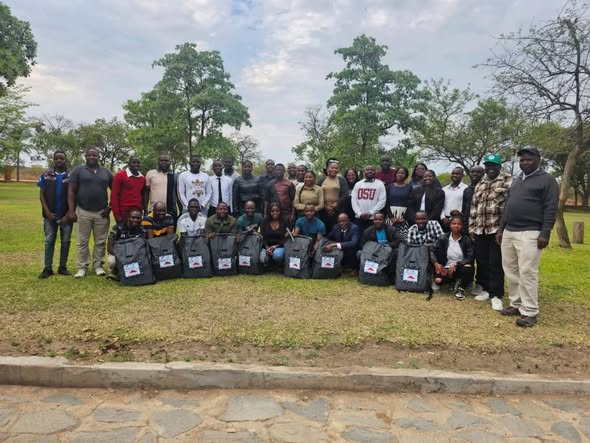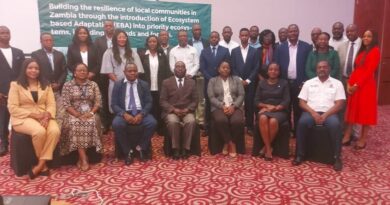Zambia Steps Up Fight Against Wildlife Poisoning to Safeguard Tourism and Biodiversity
The Ministry of Tourism, through the Department of National Parks and Wildlife (DNPW), has intensified efforts to combat wildlife poisoning by conducting a six-day Wildlife Poisoning Response Training in collaboration with BirdWatch Zambia.
The training, held under the Zambia National Wildlife Poisoning Response Protocol, aimed to strengthen national capacity to detect, report, and respond effectively to wildlife poisoning incidents across Zambia’s protected areas.
Participants included DNPW officers, veterinary experts, environmental police units, and conservation partners, who received practical instruction in scene management, evidence collection, toxicology sampling, and inter-agency coordination.
Officiating at the opening, the Director of DNPW highlighted the gravity of wildlife poisoning, describing it as both a serious conservation challenge and a criminal act.
“Wildlife poisoning is not only a serious conservation threat, it is a crime, and as a Department, we have zero tolerance for such acts. It is destroying endangered species such as vultures, lions, and elephants, disrupting ecosystems, and tarnishing Zambia’s reputation as a premier wildlife tourism destination,” he said.
The Director reaffirmed the Government’s commitment to protecting biodiversity and sustaining Zambia’s reputation as one of Africa’s leading wildlife tourism destinations.
He added that enhancing the skills of frontline officers will help reduce poisoning incidents, strengthen wildlife protection, and preserve ecological integrity, all key drivers of Zambia’s nature-based tourism industry.
Healthy and secure wildlife populations, he noted, are vital for tourism growth, attracting both domestic and international visitors while supporting jobs, community livelihoods, and conservation financing.
The Ministry of Tourism commended BirdWatch Zambia and other partners for their collaboration and dedication to wildlife protection. It further called for continued cooperation among all stakeholders to safeguard Zambia’s natural heritage for future generations.



